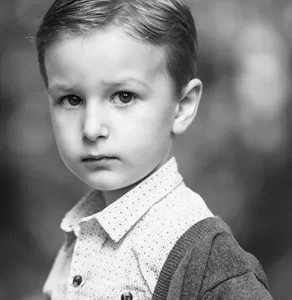Teachers Sexually Involved with Students

Things students should consider when teacher attraction stirs
Attraction and sexual relationships between teachers and their students have existed for a long time. Van Halen’s hit song from 1984, Hot for Teacher, portrays this type of relationship as “normal” and “cool.” While, Sting’s 1982 Grammy winning song, Don’t Stand So Close To Me, depicts the more likely feelings of lust, fear, and shame felt by a female student towards her teacher amidst an inappropriate relationship. Sexuality in the classroom is natural and common. But how we handle sexual attraction as students and as teachers is very different and complex.
Nearly every week, news headlines across the country report cases about teachers sexually involved with students.
READ MORE press releases about teachers sexually molesting students >>
Gone are the days of it being cool for a teenage boy to have sex with his teacher. Recently, the Texas House of Representatives unanimously passed a state bill that imposes harsh sentences on teachers who have sexual relationships with their students as well as school administrators who don’t take actions to stop it.
But the law isn’t always sitting in the desk next to us when attraction begins to stir. Here are some things to consider when a sexual relationship begins to develop between a student and teacher.
Is the relationship appropriate?
In a university study of college freshman, 5 types of student-teacher relationships were identified
- group activities
- doing favors
- spending time alone with a faculty member
- business relationships
- sexual relationships
Of the five types, all of the students who were interviewed considered sexual relationships with a teacher to be highly inappropriate. Conversely, the students tended to agree that group activities with a teacher were, generally, okay.
Teachers sexually involved with students?…Why?
Fairytales and the stories that we grow up reading always tell us that teachers are good and helpful. But these stories are never love-stories. A teacher’s job is to help young minds grow and to prepare kids and teens for the challenges that we will encounter later in our lives. When a teacher becomes sexually involved with a student, that teacher actually presents the student with a challenge that the teen is not emotionally prepared for at that time in their life.
We need to ask ourselves, why would a teacher want to complicate a teen’s life with secrecy, sex, and complex emotions? What type of adult would put those types of burdens onto a teenager?
Generally speaking, adults who attempt to have relationships with kids and teens are the types of people who need psychological help of some kind. If these adults didn’t need help, then they would be in healthy relationships with people their own age.
Sexual relationship? …or Sexual Abuse?
Sexual relationships by teachers with their students are, legally speaking, considered to be sexual abuse. Sometimes teens don’t understand that. Even the term “Child Molester” can seem intuitively wrong in certain sexual teacher/student relationships.
In our teenage years, we feel grown up. We are able to have meaningful and intelligent conversations with adults and we do have genuine emotional experiences. However, teachers who take advantage of young, and sometimes naïve, teens through sexual relationships are breaking the law, and they know it.
Child Sexual Abuse is defined as the violation of a trust relationship between a molester and a child which involves secrecy and sexual activity that the molester knows to be unacceptable.
Teachers who become sexually involved with their students never display their attraction out in the open. They always wait until they are alone with the teens. They establish a routine of private emailing or texting and they adopt a “secret” way of communicating during school hours. Something that most adults know but that many teens might not readily understand is that any perceived conduct by a teacher or adult that would classify as sexual abuse of a minor in a court of law, is not a “relationship” it’s sexual abuse!
The law is designed to protect the kids, not the adults
It is common for sexuality to open up when we spend a lot of time with people. This is likely why Hollywood is so famous for frequent and short-lived marriages. When actors work closely on a film, they experience feelings with co-actors that they wouldn’t have felt off-set.
Similarly, teenagers are just beginning to develop their own sense of sexuality. And feelings of attraction to an older, more mature person are not necessarily wrong. What is wrong, is when a more mature person–particularly one who is in a position of authority over minors–fails to take proper responsibility for their actions. Even if a teen was guilty of flirting with their teacher, it’s the teacher’s responsibility to help the teen redirect those feelings in a positive, more appropriate direction. Teachers becoming sexually involved with their students is never the student’s fault.
The law understands that teenagers are in a difficult and confusing time in their lives. California law supports something called Delayed Discovery. Allowing adults to take legal action against the people who sexually abused them when they were kids, long after the abuse happened. Delayed Discovery can be a difficult legal concept to understand. If you have questions about delayed discovery, it’s best to consult with a lawyer who’s familiar with the term and how it applies.
The take-away in all of this is, if you’re not sure if you are being sexually abused today, rest assured that the law is on your side and can help you if you experience mental or physical injury sometime later in your life.
The best time to talk is when you’re ready
Thankfully, delayed discovery laws will help anyone who has been sexually abused to file a lawsuit later in life. But waiting isn’t necessary. When you’re ready, the best thing you can do is contact a lawyer who is knowledgable in sexual abuse law. A good child sexual abuse lawyer will help you understand your options today, so that you can help protect yourself from the problems that might come about tomorrow.
Victims of sexual abuse are just that…victims. Sexual abuse can lead to social and interpersonal problems later in life. It can lead to alcoholism, violence, risky sexual behavior, and drug use. It can hurt the victim and the victim’s families unknowingly. But survivors of sexual abuse are the ones who confront the embarrassment, pain, and confusing emotions directly to become strong and active individuals. Survivors are some of the strongest people we know. In fact, one of our staff members, Adrian Ramirez, is a survivor of childhood sexual abuse. Adrian works directly with all of our clients as an advocate and as a friend. He knows what it’s like to be confused by the sexual advances of a trusted adult.
READ MORE about Adrian’s story as a sexual abuse survivor >>
Call us if you or someone you know has been sexually involved with a teacher when they were a student. Adrian and Anthony are available to answer any question that you have.




